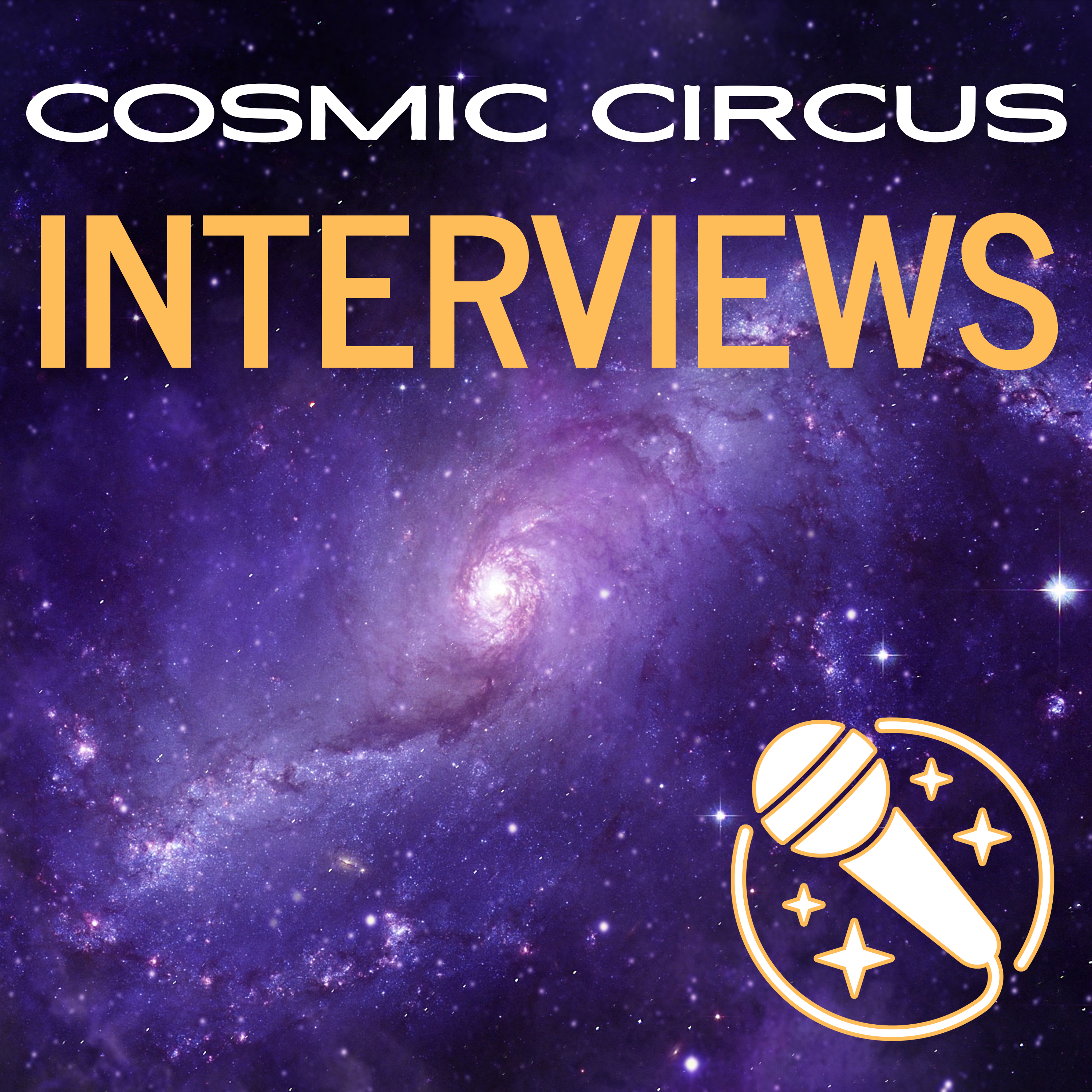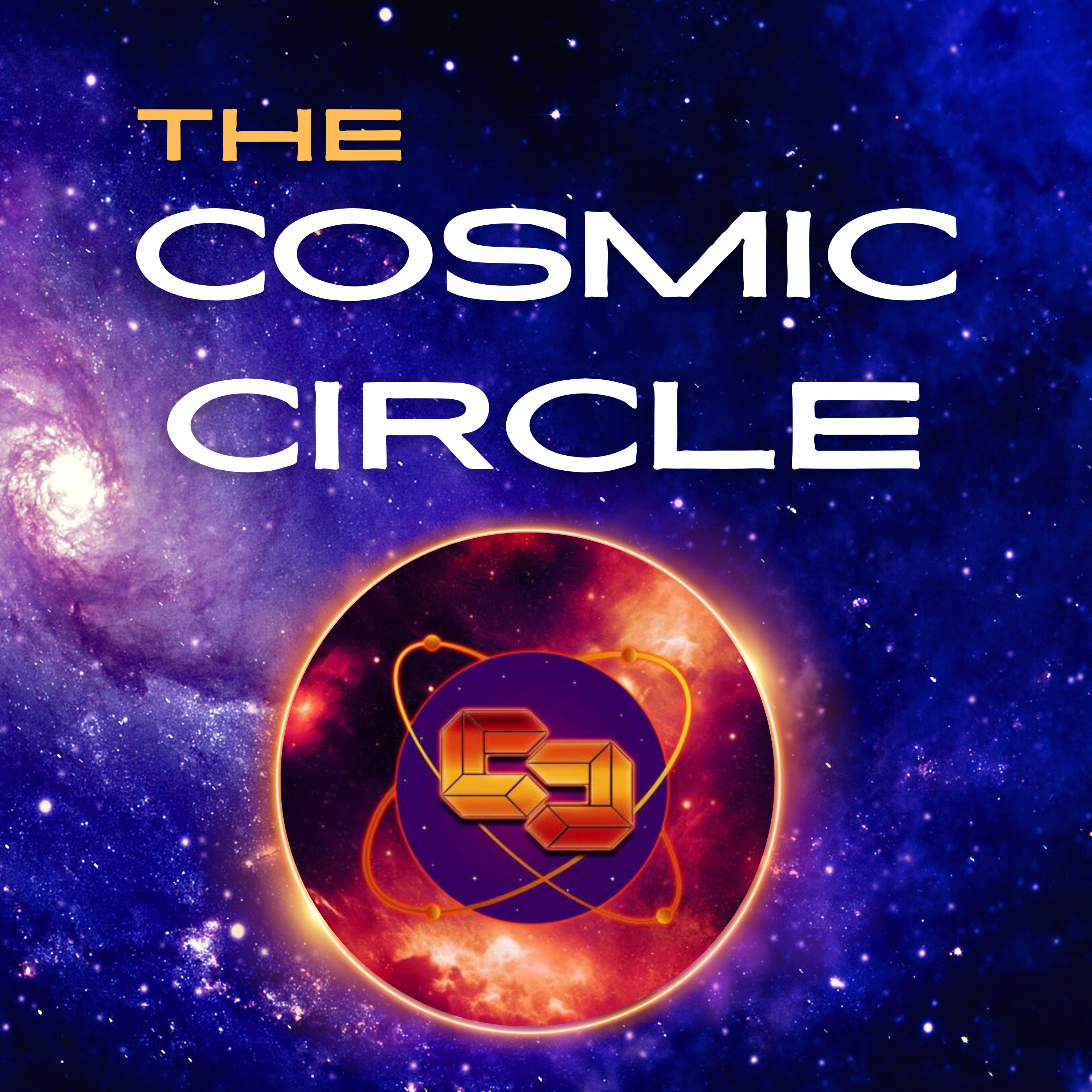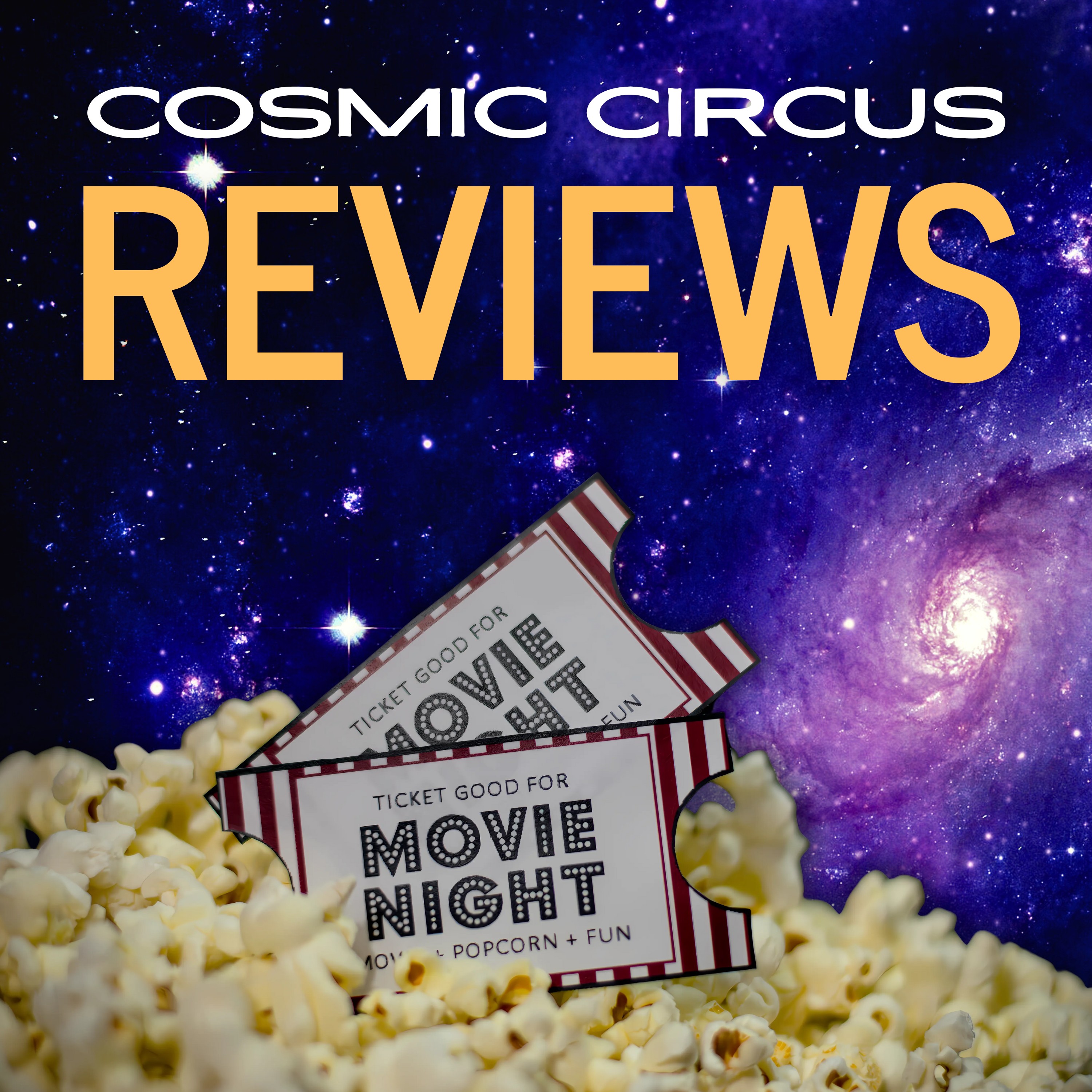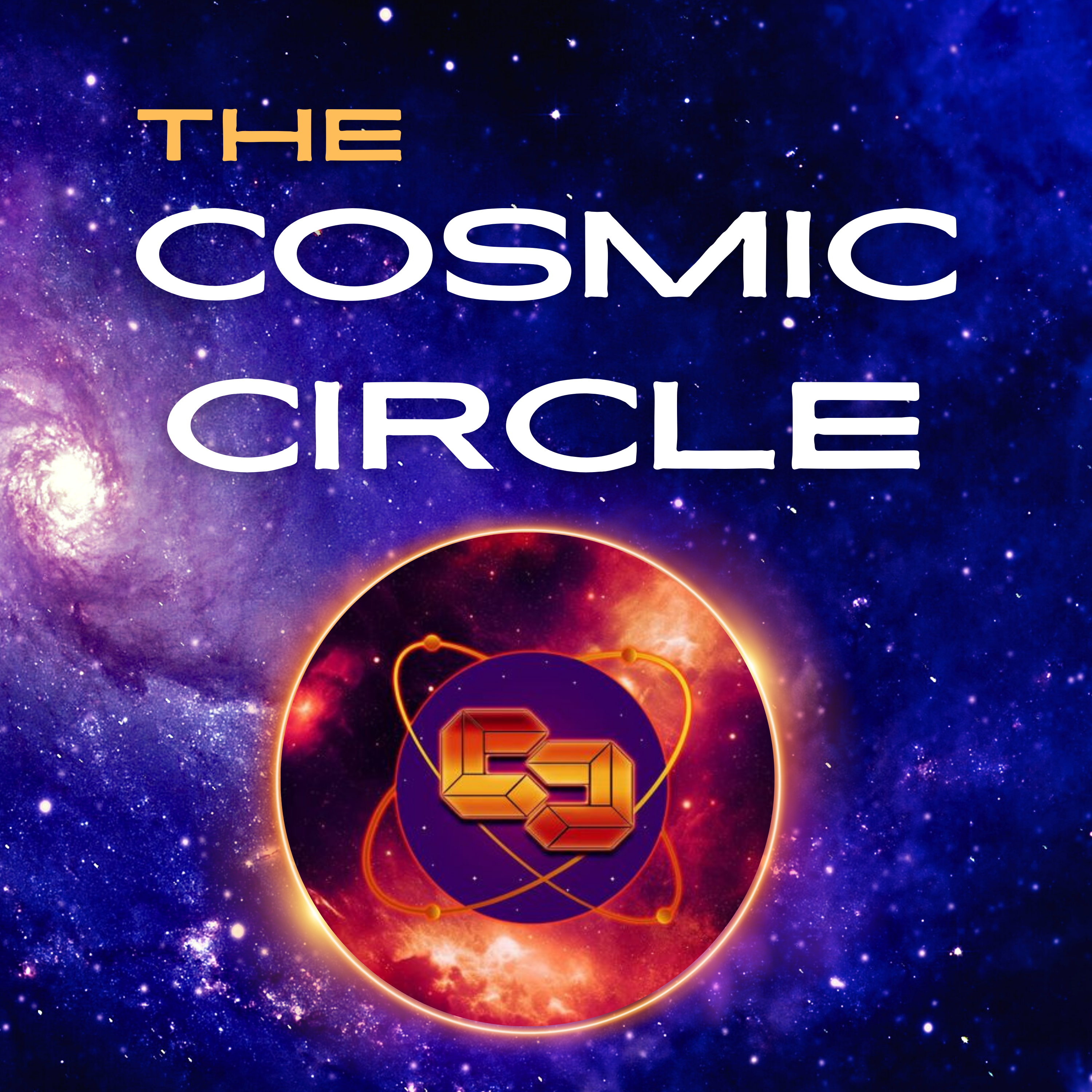Speaker 0 00:00:00 <silence> Hi, and welcome to the Cosmic Cafe, the companion podcast to the cosmic circus.com. Your source for nerdy news reviews and more. I'm ala Ruby, and we have such an interesting episode for you today. If you like dinosaurs and prehistoric creatures. We're talking with executive producer Mike Gunton and showrunner Tim Walker from Apple tv. Plus's new show, prehistoric Planet two. Without further ado, here's our interview. Enjoy. Hi, I am Isla. It's nice to meet you.
Speaker 2 00:00:42 Hi, Aila.
Speaker 0 00:00:44 Um, so can you tell me a little bit about, uh, you both and also about, uh, prehistoric Planet too?
Speaker 3 00:00:50 About ourselves? Yeah. Or what we do? Yeah. Okay. Um, well, we're, we're both filmmakers, wildlife filmmakers. Um, I'm, my, my name's Mike Gunton. I'm the creative director of the Naturalist Unit and I'm executive producer on this series. And, um, loving every minute of it.
Speaker 2 00:01:07 Uh, and I'm Tim Walker and, um, I've got the very enviable, um, task of, of helping to turn Mike's vision into reality and, uh, and work with John Favreau and Han Zimmer and Sir David and all the wonderful artists at N PC to create the CGI I dinosaurs. Um, uh, we're lovely seeing it.
Speaker 3 00:01:29 Um, and, and you know, the, I mean, have you seen the series? Do you, I mean, you know what we're doing, I guess. Yeah.
Speaker 0 00:01:33 So I have, have in
Speaker 3 00:01:34 Nutshell. Yeah. Yeah. So you, you know, in a nutshell, what we are basically doing is making a wildlife series 66 million years ago. It just happens to have dinosaurs in it rather than lions and elephants and tigers. So it's fit should feel like watching planet Earth, but with a different cast of characters. So everything about it should have that same feel and that same emotion, that same the tropes that you find in those kind of shows. And the same experience, hopefully you feel connected to these animals as if they're, you know, you are with them watching them. That's, that's our approach.
Speaker 0 00:02:05 I was amazed by, um, e even just in the first episode, the Mammal, um, I think it was, I'm, I'm gonna mess this name up. Probably the, um, a Ethereum just, I felt so much for her and just, you know, I think you guys have done such a great job. Um, and I actually, I wanted to talk about her too. Um, so, you know, you've got other animals besides just dinosaurs in this season, right? There's like more, um, I guess more animals from the ecosystem. Can you talk about that? Because I think that's different than the first season.
Speaker 2 00:02:36 Uh, it is, yeah. I mean, one of the things we're very keen to, to bring to this new season was, uh, was new dinosaurs, new habitats and new characters. So we've introduced about 25 new characters into this new season since the first one. Um, about 15 of them are d dinosaurs, but we've then expanded the, the universe, so to speak. You know, we're painting a picture of the prehistoric planet as being very diverse, very rich, rich. And so we brought the mammals in. Who knew mammals were around at the same time as dinosaurs. I mean, we did, but I think lots of the general public don't realize they thought mm-hmm. <affirmative> dinosaurs got wiped out, then the mammals came along. Mammals have been around for ages almost about the same time as dinosaurs, but they were generally small. It's only in the latter stages they start to get big and then we bring fish in for storylines and birds and other reptiles. And, um, it's just all part of painting this very rich world, which is building on what we saw in season one.
Speaker 0 00:03:32 Now the episode with, with the Fish, I think that was called Oceans, was that it was either three or four. And that was just stunning and, and really cool. Um, it was, it was I think my favorite. What about, uh, for both of you? Was there a favorite episode that you worked on? Was there something really, um, interesting for you that like, just really grabbed your attention out of all the bio?
Speaker 3 00:03:53 I think it's hard to choose a favorite episode, actually. 'cause they're, they've all got something so gratifying about them. Um, I think the Ocean's One is an interesting one. It's a cha very challenging one. Technically that was a hard one to do. Um, and also, you know, you have some very positives, which is that it's all, it is one ha it is one quite u um, unified habitat, but that's also, it's challenge. It's just one unified habitat. So, you know, you don't get, you don't necessarily get the variety, but great, the greatest. I, I think I, no, I can't even say what my favorite is 'cause one of, one of my, uh, my colleagues will kill me <laugh>, but they've all got moments which I think are, uh, out outstanding. So I could choose a moment rather than a, an episode perhaps.
Speaker 2 00:04:33 What's your moment then? What's your favorite moment?
Speaker 3 00:04:35 Well, well, I think it would be that, I think it is the opening. I think that's hard, but No. Okay. I think what our tour de force in the, in the series is the opening sequence of, um, the North America show, which is the last show in the episode in the, in the series. And the reason for that is because it's, it's got super characters in it. It's got a massive Tor SoPo, it's got a T-Rex, it's got a two, uh, massive terra saws, and it's even got a little B character. It actually add a little bit of co com comedy to it. But it, but it's a story that feels so authentic because it, it feels to me like that's what would've happened. We would've not, we wouldn't have filmed that. We would've known that would happen, but we would've been filming those saw reports on their migration, and that would be the story we were filming. And then this happened, and you think, forget the migration story. Let's concentrate on this. So it feels very much like found footage as if we genuinely were there when this extraordinary thing happened and you go with it and it feels like it's filmed in that way. A storytelling develops in that way. And it's the sort of sequence that if you were, if we were making Planet Earth today and you got that, you'd say that's an opening sequence. So, you know, that's why I like that one.
Speaker 2 00:05:40 Yeah. And I, I I, I, I'd say that, you know, I, I've got two kids and I'm never allowed to have favorite child <laugh>. And, uh, it's a little bit the same with the, the episodes. I can't have a favorite episode, but I can have a favorite sequence like Mike. And I think one of them is definitely the cephas or sequence in the swamps episode where we see the, the dome headed, uh, uh, by people dinosaurs, that, that bashed together. I know there's a, a male trying to exert hiss dominance across the group. I think it's wonderful bit of science because, you know, the science behind the dome school's something that we looked into a lot during the making of the series. And, uh, those skull were 30 centimeters thick. And, um, and we found out a lot about what they would've been used for. It's beautifully filmed as well. There's a great bit of storytelling. So,
Speaker 3 00:06:28 And the, an the an the one of the things that's so extraordinary about the animation here, of course all the, all the kind of obvious bits of animation about how they move and how they fight all those, that's all extraordinary. But what, what these guys have done that I think speaks to what Tim's saying as well, is that you look into the eyes. You, you, there's a moment where you think, I know what that mm-hmm. That pack can source thinking that may I thinking, am I gonna win this or not? Am I gonna get, is this gonna, am I gonna die if I do this? And to be able to em to create that empathy mm-hmm. In a creature that's made in a computer is, is, is genius for those people. And I, I think that that's one of the things that I don't think it, I don't think that's been done before at that, that level of empathetic connection with these creatures. And that's partly our, the stories, but it's also that as astonishing, uh, skill in the animation.
Speaker 0 00:07:20 There's a lot, um, it, it seemed like there was a lot different as well with the, um, like the technical parts of the filmmaking. Like there was, um, there was night vision. I think there was, um, heat, heat vision. I'm, I'm, maybe I'm Yeah. Conflating the, but yeah,
Speaker 2 00:07:34 That's, yeah, that's right.
Speaker 0 00:07:36 So what, um, can you talk about like the decisions to, to bring those into, um, into play? Like what why that, why
Speaker 2 00:07:45 Yeah, why did we Yeah. Well I think it's with any, any sequel, you know, so when you, when you, when people first saw Planet Earth, there was then an expectation that Planet Earth two, the sequel would push the boundaries of filmmaking, uh, uh mm-hmm <affirmative> and, and in terms of the behavior and what have you, we followed the same ethos. So season one laid the benchmark, and then we pushed the boundaries to incorporate different filming techniques. So we see thermal imaging, like you say, we see night vision, you know, some of the night vision cameras that we use today can make nighttime look like daytime basically. And so we've followed the same rationale there. We've introduced a lot more slow motion, so you can see fine detail in some of the action. And we've taken the camera closer, literally closer in terms of seeing a lot more closeups of the animals.
Speaker 0 00:08:32 Um, so what
Speaker 3 00:08:33 It's, it's like art following. I mean, it's a very weird, this whole process has been quite a bit of a mess with your head, really. 'cause it is like art following life because as Tim said, that's exactly what would happen when we make a planet Earth. Mm-hmm. <affirmative>, uh, you know, new, new technology would appear, which we then push the boundaries with. And that, that also happened in, in this because we were able to technically use that tech. So we probably couldn't, we probably didn't have the technical skills on series one to be able to recreate a thermal camera or an ultra high speed camera or a night vision camera. So weirdly, we are, we're both copying that, that, that sort of evolution you we've seen in the real world. But actually it is a true evolution as well. So no wonder we're all kind of gonna have to have a big holiday when this is whatever <laugh> because our heads are all gonna a point.
Speaker 0 00:09:26 And I think this might be my last question, but, um, so what do you want folks to take away from, you know, from watching this, um, miniseries event? Because like, what would be your ideal for them to walk away, you know, thinking and feeling after, after it? And also, are there plans for a third one?
Speaker 3 00:09:45 Well, we,
Speaker 2 00:09:48 I was just gonna say, I, I would love people to be as excited by the, the long lost ponic world as we are, you know, and, and I think people are, I think that everybody loves the prest prehistoric world when they're a child. And it's still there lurking in the background. We just need to pull the hair out of them,
Speaker 3 00:10:09 That they're not, these were extraordinary animals, not mon, not monsters. That that world was utterly full of life and has huge parallels to the world we live in today. And that is a thought provoking thing to do, to think about, to stand and look, look back in time, but also look at ourselves, look at life today. You know, we, we are a tiny sp blink of an eye in the history of our planet. And that's a quite a thought provoking thing to do.
Speaker 0 00:10:41 Thank you both very much. This has been wonderful talking with you. Um, and thank you to everyone else as well.
Speaker 3 00:10:48 Yeah, very pleasure. Talk to you. Thank you very much.
Speaker 0 00:10:52 Thank you for listening. You can find the companion article for this podcast, along with all the other news for those who like superheroes, science fiction and fantasy films, TV shows, and other
[email protected]. Have a great day.



